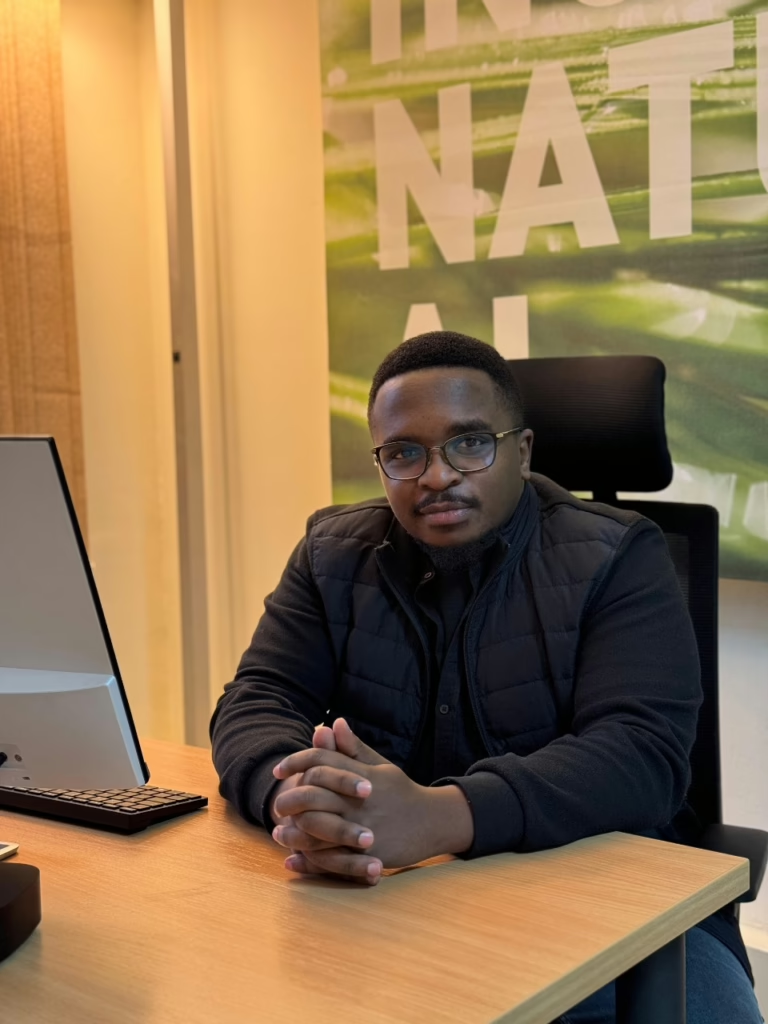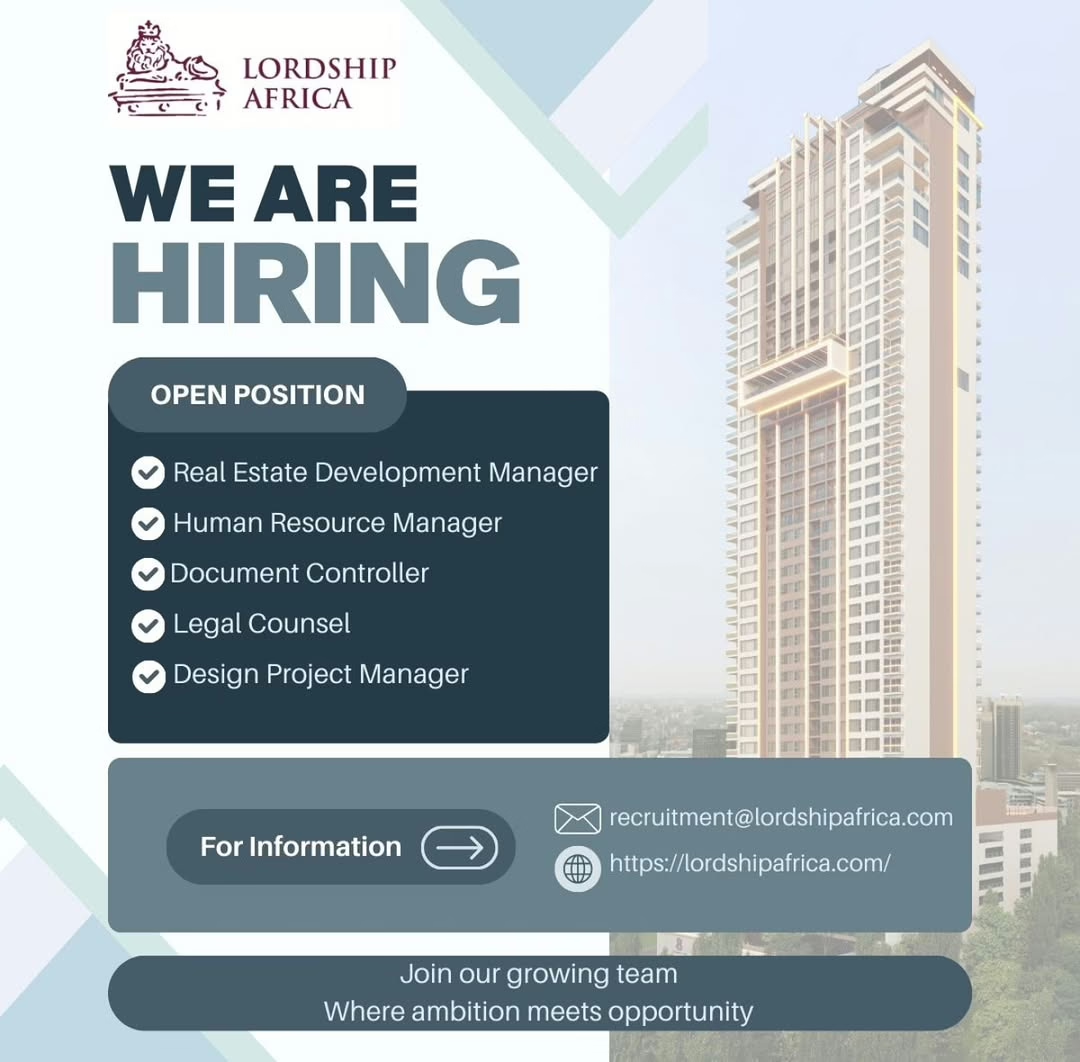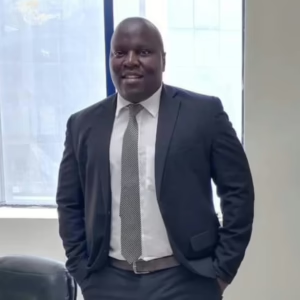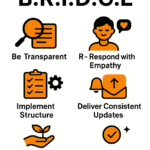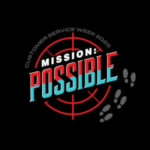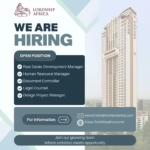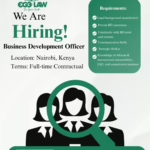Life is a compilation of micro journeys woven from paths that criss-cross, diverge, or converge while moving in different or similar directions. It’s like a book with many chapters bearing flashbacks and flash forwards that form a consistent thread throughout the book.
The diversity of the journey means some steps are light with joy, triumph, and a sense of accomplishment, while others are heavy with struggle, discouragement, failure, and rejection. However, each step chisels away at who we are and reveals who we are becoming.
In part one of this World Entrepreneurship Day, titled ‘Entrepreneurship as a Mindset,’ Tim Dagori Muiruri shared his early life, including how his upbringing shaped his passion for entrepreneurship, and the seven lessons he’s learned as a lawyer in tech, a businessman, and a legal advisor to startups.
We established that an entrepreneurial mindset transcends the professional space and permeates every area of life. So, in part two of this series, Tim gets vulnerable and recounts the steps in his career journey as a lawyer and entrepreneur that were light with fulfilment and those that were heavy with life lessons, including prioritizing his physical and mental wellness. So, enjoy this heartwarming and reflective piece laden with life lessons and inspiration as Tim explores various facets of his entrepreneurship journey, including the myths he encountered, problem-solving, driving impact, and staying sane and grounded through it all.
First are the lessons he has learned from his time as an entrepreneur and as an advisor to entrepreneurs.
1. Resilience
Being able to survive setbacks and adapt to changes without losing sight of the bigger goal.
2. Bias for Action
This is a popular principle in the tech space, whereby you must see your ideas and strategies through. The key difference between an entrepreneur and anyone else with ideas is the ability to follow through. “Perfect plans rarely beat consistent execution.”
3. Resourcefulness
Stretching the tools, finances, and other resources at your disposal to the maximum to achieve the short-term and long-term goals. “Even in corporate settings, most of the time you approach the management/ your seniors with an idea, they’ll likely ask you what you can do with what is already available in the organization before including your idea in the budget.” Similarly, investors only commit their funds to scale up where there is proof of concept.
4. Networks
Relationships are almost as valuable as capital in entrepreneurship.
Debunking the Myths Around Entrepreneurship — Tim’s Reflections
In Part 1 of this series, we shared statistics from a GeoPoll report on the state of entrepreneurship in Kenya. The report highlighted that many Kenyan youth are interested in entrepreneurship. One of the things they need to get them started is accurate information on entrepreneurship, yet misconceptions sometimes raise false expectations about being an entrepreneur.
Tim posits that one myth about entrepreneurship that everyone must break from is that it’s glamorous, because it is anything but glamorous. This general take obscures the risks, effort, and long-term learning that entrepreneurship requires.
Second, another myth to throw out of the window is that you must have everything figured out before you start executing your idea as an entrepreneur. Tim lifts a quote by Mark Zuckerberg, Meta CEO, who once said that ideas don’t usually come out fully formed. So, start with what you have, and then dot your i’s and cross your t’s as you go. “This is especially true in a market like Africa, where as you bring the business idea to life, you’re probably also building the infrastructure to support it. So, if you get hung up on the infrastructure, you’ll probably never start.”
Third, we need to retire the idea that innovation is always about ground-breaking technology. Sometimes it’s as simple as using an Excel sheet as a monitoring tool. Also, Execution, timing, and market fit often matter more than originality. Many successful businesses build on existing ideas.
Fourth, the notion that entrepreneurs, founders, and business people have to go it alone is untrue, as highlighted in Tim’s take on network-building above. “Some of the best ventures that I’ve seen or read about are built on collaboration and community.”
Driving Impact Through Entrepreneurship
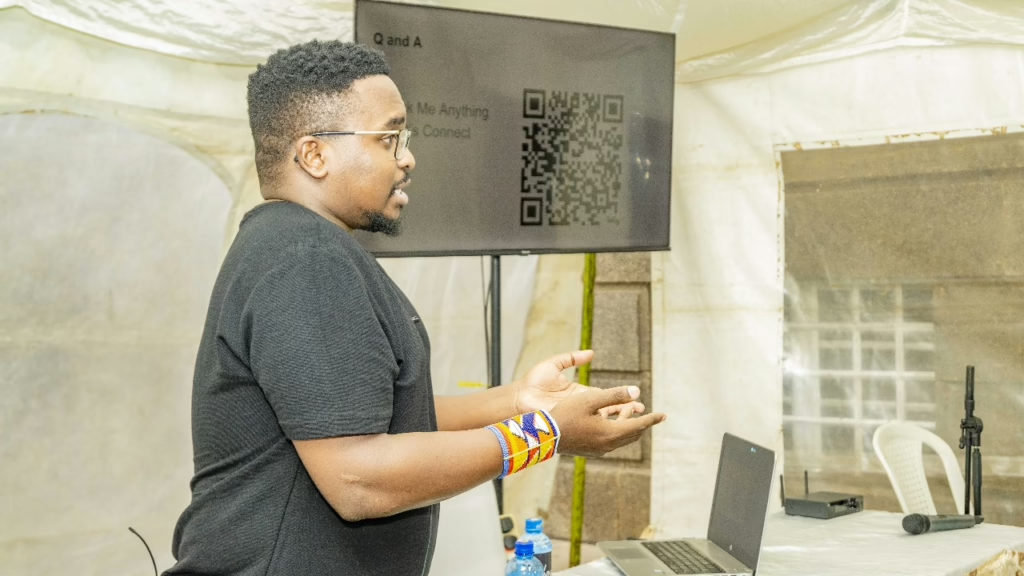 Entrepreneurs are often agents of change, turning ideas into solutions that transform industries and communities alike. Tim has worked on diverse entrepreneurial projects across the continent during his time with iHub/ CcHub and now with Advantage Austria.
Entrepreneurs are often agents of change, turning ideas into solutions that transform industries and communities alike. Tim has worked on diverse entrepreneurial projects across the continent during his time with iHub/ CcHub and now with Advantage Austria.
“I like that we’re working on real commercial partnerships that have the potential to create jobs, drive innovation, and strengthen trade. It’s an approach to business and value creation. These are not momentous or big projects, but in those moments, I feel like I pushed the needle just a little bit further.”
One of the projects where he’s proud to have identified gaps and leveraged technology to create a more inclusive space was the #GoVote Project by Co-Creation Hub Africa in Nigeria. The project utilized simple technology tools, including a website and social media platforms, to disseminate information on learning modules. It aimed to encourage 5 million Nigerian youth to develop an interest in politics, register as voters, and participate in elections.
In an individual capacity, Tim is also proud of the impact he made with small-scale avocado farmers in Murangá County. This happened in 2023 when he had to take a break from employment due to health reasons. Tim linked the avocado farmers to price-premium retailers and manufacturers who could buy the fruit in bulk, but at a higher price, allowing the farmers to make higher profit margins from their produce.
“I was like a funnel for them, and I started by seeking out exporters and understanding the export demands, then helping the farmers position themselves accordingly. It was fulfilling when farmers shared testimonies on how they used to sell each fruit at KES 5.00, but now they’re selling them at KES 50.00 or even 70.00 per fruit.”
Mastering the Art of Problem-Solving as an Entrepreneur: Tim’s Take
Entrepreneurs live to solve problems or identify gaps and fill them effectively and sustainably. Based on his decade-plus in the entrepreneurship space, Tim developed the problem-solving formula below:
- Starts with understanding the problem
- Listen more, talk less
- The first answer is rarely the correct answer
- Test assumptions
“We have biases and assumptions, and sometimes you don’t even realise you had an assumption. It isn’t until you talk to someone that you realize that you didn’t even know you had a particular assumption.”
Second, he posits that problem-solving entails realizing that not all problems need a perfect fix immediately. Being able to pause and understand the context more empowers you to apply the above formula better.
“ I recently had an opportunity to listen to a talk by Captain Koki Mutungi, a pilot, and she highlighted that in aviation they have this prioritization principle: Aviate, Navigate, Communicate.” You could be on fire, but you must do the job, which is flying the plane, then navigate the problem, and finally communicate afterward. Pausing allows you to ask better questions.
As a problem solver, Tim admits that at times his feedback to certain queries is “I don’t have any feedback at this point, please allow me to mull over it, then I’ll get back to you.” However, he concludes that even as a problem solver, you must strike a balance; some situations require a rapid response, so always have the instinct to know when to pause and when to act immediately.
Entrepreneurship’s Mental Toll
The entrepreneur’s journey is anything but glamorous. While it has its fulfilling moments, there are quintessential startup challenges that every entrepreneur should brace themselves for at some point in the journey.
- Finances
According to Tim, the question of money, whether it is how to make it or spend it for growth, will always come into play. “Psychologists and Psychiatrists often posit that our mental state is directly proportional to our financial state. Money is not everything, but the financial element can take its toll.”
- Volatility
Essentially, entrepreneurs operate in an environment of constant change. For instance, with high-stakes situations, whether as an entrepreneur or an advisor to the entrepreneur, you’re constantly navigating things like founders’ dreams, investors’ money, regulation shifts, market changes, and deals falling through at the last minute, just to name a few challenges. The unpredictability can sometimes feel like you’re constantly in motion with no off switch.
Even as a lawyer/advisor, there’s a weight to knowing that your advice impacts people’s futures. And in all this, you must adapt without losing momentum, and there’s also the need to balance precision with speed. For instance, the business is growing fast, yet as an advisor, you still need care and detail.
Learning self-care
In November 2022, Tim was diagnosed with chronic fatigue and burnout. “It was terrible and I thank God I managed to pull through from that, of course, with the support of my loved ones, and my faith in God.”
Based on this experience, one thing Tim has had to unlearn and re-learn is being deliberate about the times when he’s unavailable for work or clients. “I’ve learned boundaries, and reflecting on it, I think because of our schooling as lawyers, or because of what we see on TV, or the spaces we work in, we pride ourselves in being able to attend to that late-night call from the boss or a client and work on the deliverable, even if it means pulling several all-nighters.”
Although Tim admits to being guilty of lacking boundaries in the past, he points out that sometimes the things you drop your boundaries for are not actual emergencies.
Parting Shot:
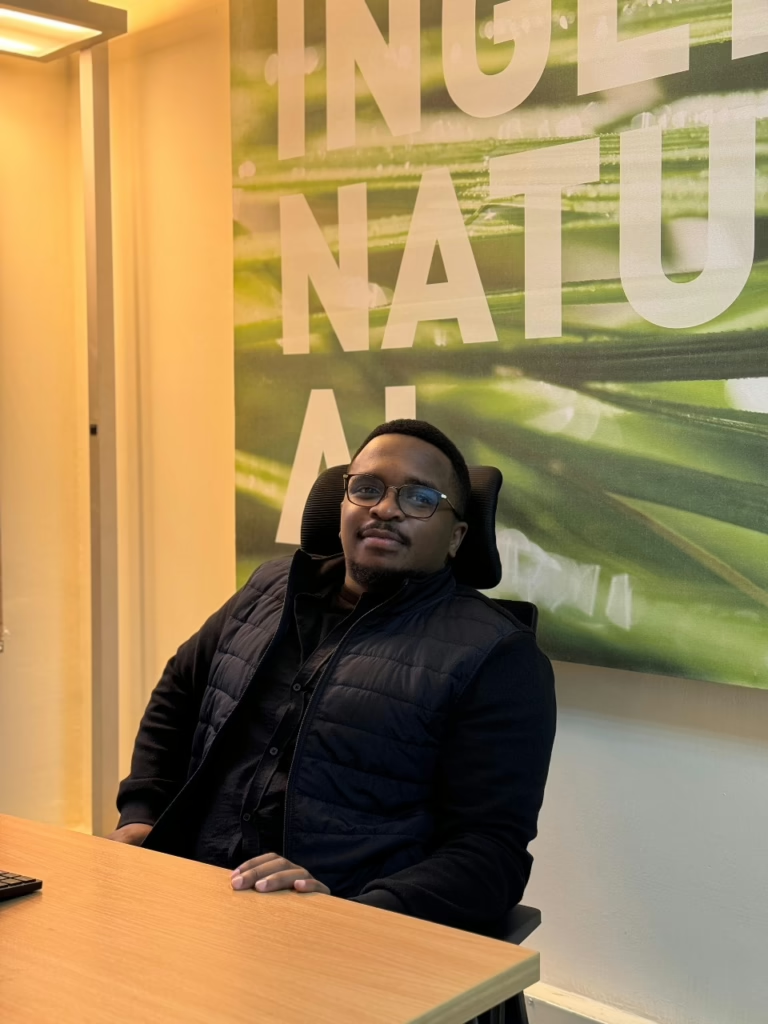 Tim summarizes his career as a lawyer in tech, navigating business and diplomacy in two words: building bridges. The constant thread in his ten-year career is linking entities, whether it’s sector-wise or knowledge-wise, including different markets. As an interdisciplinary individual, he has figured out how to bridge his two passions, the law and entrepreneurship. Also, as Tim navigates his career, he relies on the guiding principles below:
Tim summarizes his career as a lawyer in tech, navigating business and diplomacy in two words: building bridges. The constant thread in his ten-year career is linking entities, whether it’s sector-wise or knowledge-wise, including different markets. As an interdisciplinary individual, he has figured out how to bridge his two passions, the law and entrepreneurship. Also, as Tim navigates his career, he relies on the guiding principles below:
- Integrity: Keeps him anchored to what’s right.
- Clarity: It ensures his decisions are grounded in facts and strategy. “My boss used to say that even if it’s a wrong decision, but you made it backed by empirical evidence, grounded in facts and strategy, and you can explain it, nobody will fire you, and you won’t lose clients based on that.”
- Empathy: It reminds him that every decision affects real people, and it’s not just a file, and empathy helps you serve people better. “Even as a lawyer, if you get an opportunity to interact with the people/ communities whose lives a contract may affect, take it.”
Tim Dagori’s Career Reflections:
So, what would Tim say to his younger self?
“You don’t have to have it all figured out. The law is a powerful foundation, but your career does not have to follow a straight line. Don’t be afraid to create your own opportunities.”
And to the young lawyer or law student finding their footing and wondering how to employ and cultivate the entrepreneur’s mindset, he says:
“Learn the rules, but also learn when to challenge them, especially if you want to get into business/entrepreneurship. Understand business models. Regarding how you spend time building networks, you can attend events, but there are also other resources like podcasts and YouTube channels where you can pick up invaluable information. Finally, always remember that the best lawyers aren’t just risk managers. Most times, as lawyers, particularly I think because of our training, you can reduce yourself to just a risk manager, but remember to approach it from the angle that you’re also an enabler of vision and growth.”
I am left wondering whether Tim is a techie in law or a lawyer in tech. Though after all of this, I’d say he is an entrepreneur. Follow him on LinkedIn and other digital avenues to learn as he continues on his entrepreneurial journey.


